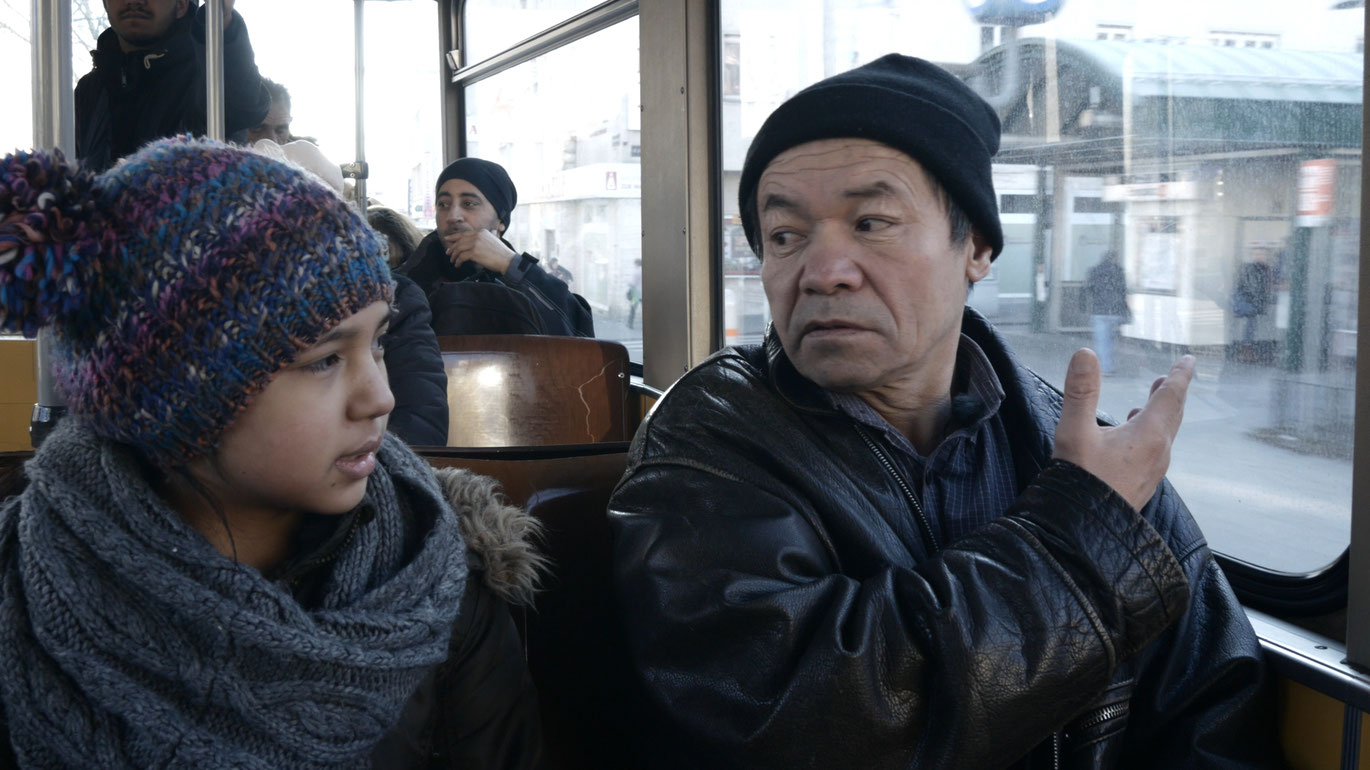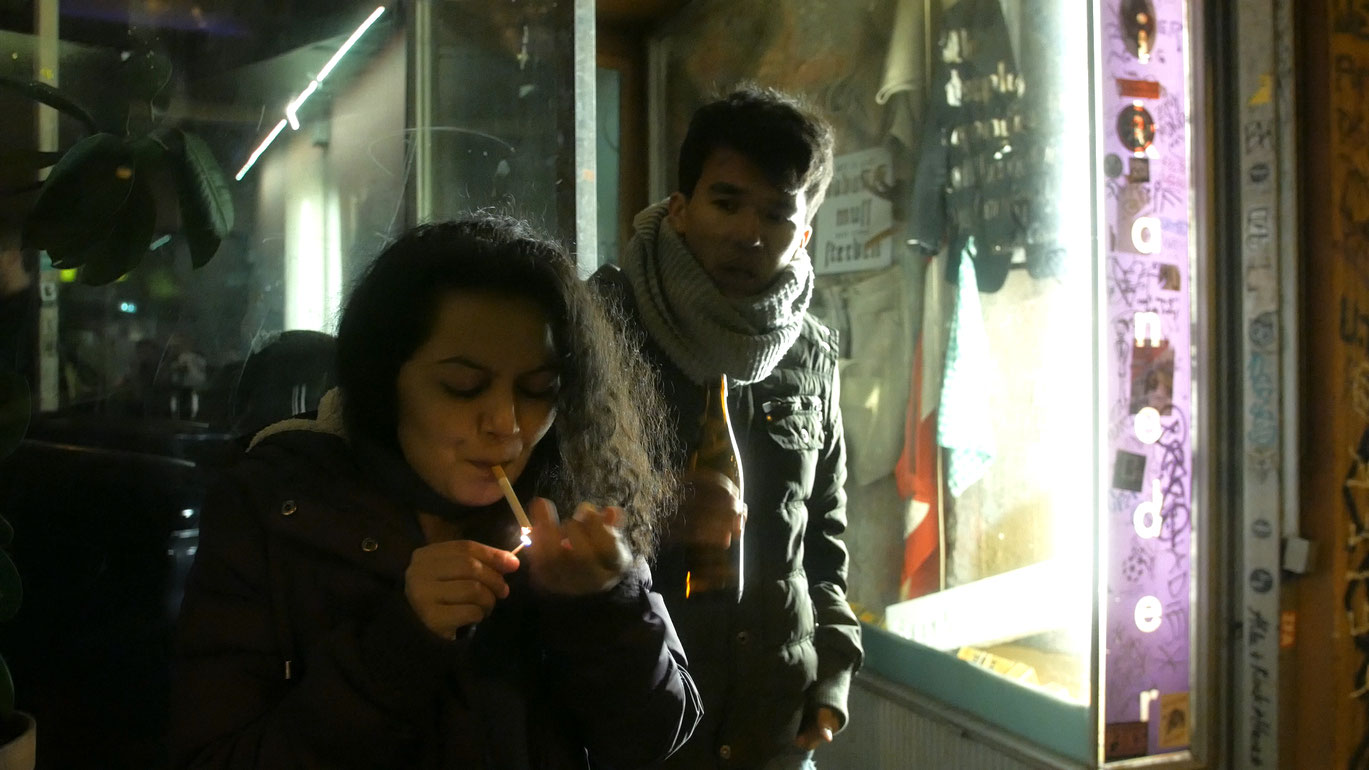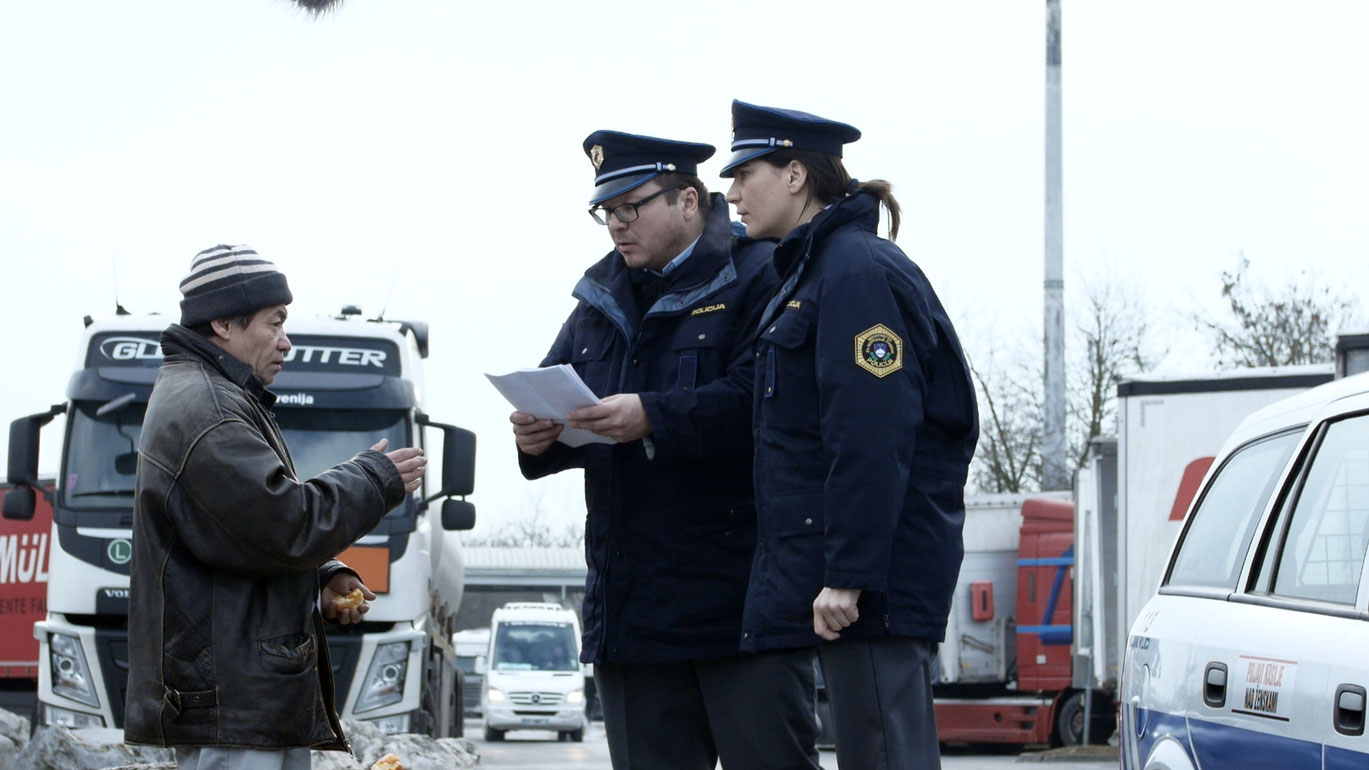The Most Beautiful Country in the World
short: The clash of two worlds in the present-day Europe. As the indigenous population seeks to defend the status quo against escalating immigration, the newcomers are burdened by their own displacement. Forced to flee their homes, they are trying to adapt to the strange new environment.
----
December 2016, a demonstration in front of the parliament in Vienna. Two men on the fringes of the mass of people begin talking - about the destruction of Aleppo, the Taliban, the few supporters of war who establish their claim to truth violently against the lives of the many who are uninvolved. The brief exchange is shaped by interest and understanding.
What is filmed is immediately apparent as fiction; the two men are so neatly set into the picture, the dialogue so faultlessly audible, shot/reverse shot in a comfortable rhythm. This principle energizes the aesthetics of Želimir Žilnik´s The Most Beautiful Country in the World. Appearing here in front of the camera are people whose lives did not begin in Austria in this generation or the past one. They go step-by-step through both dramatic experiences as well as scenes from everyday life - whereby this includes both the everyday situation of having to integrate in a still unfamiliar land and routine that is already based in local living contexts. Here, documentary film is staged with the goal, wish, and reality of creating bonds. Several times over this process generates the hint of a catastrophe, promises doom. But the self-defined approach of the protagonists, a refreshing pragmatism, and the fine humor that pervade the film swing the sail onto course at the last moment for a happy end. (Fantastic moment: the bride who after the mock wedding staged for her grandfather, tells the groom´s girlfriend how convenient it was to wear the veil covering her face, because then the guests had no chance to notice that she was sleeping during the ceremony.)
Every scene describes an approach. Between the people among themselves, between individuals and institutions. In its final ramifications, The Most Beautiful Country in the World is a plea for a society in which lived diversity does not degenerate to a mere fashionable slogan. (Melanie Letschnig)
The film follows a group of young migrants in Vienna who break through the administrative labyrinths of checkings and gaining status and residence. We see their anxieties, mutual encouragement and achievements - while mastering the foreign language, they demonstrate skills in their professions, clarity and knowledge on entrance exams for schools and universities. It is also a story about new and old friendships, about the feeling of freedom in the new environment, without the pressure of war threats and the patriarchal stance of the family life.
The main hero is a twentythree-year-old Bagher, who embarked on his journey from Afghanistan as a seventeen-year-old, leaving a war-thorn family. After three years of travel (through Iran, Turkey, Greece and the Balkans) he arrived in Austria in a great migrant wave in 2015. He prooved himself to be a brave, honest and intelligent young man. He has mastered German language, has several devoted and intelligent friends. They are on the road of “Europeanisation”, but suddenly Bagher`s grandfather Haydar appears, arriving in Austria illegally, through Slovenia. He came to find Bagher in order to convey the message, that he has a duty to preserve the name and honor of the family, because all the other men were killed in the war back in Afghanistan. The appearance of gradfather Haydar leads to discouragement, evocation of the past, conflicts and a series of new labyrinths, from which Bagher and his new friends must find the way out. (Želimir Žilnik)
Das schönste Land der Welt
2018
Austria, Slovenia, Croatia (Hrvatska), Serbia
101 min
hybrid, Fiction, Documentary
German, Farsi, Mandinka, Serbian
English, German



